Hypothyroidism Diet
Don’t expect to hear this from your doctor, but following the right hypothyroidism diet plan is by far the biggest factor in overcoming hypothyroidism. You can do everything else right and be using the best available supplements or medication, but if your diet isn’t right, then you will be forever fighting a battle that you just can’t win.
Then there’s the problem of actually finding the “right” hypothyroidism diet to follow. Most diets for hypothyroidism are completely outdated and based on poor research, if any research at all. But there’s also a lot of great research out there that is just now starting to connect a lot of the dots with hypothyroidism.
But unfortunately, it will take years or even decades for the general public, or even the medical community, to accept the fact that many of the dietary beliefs that exist today are completely false. And there’s a good chance that they never will.
Until that time comes, I plan to share all kinds of hypothyroidism diet tips with you, starting with these 10 below.
10 Hypothyroidism Diet Tips to Help Heal Your Thyroid
Below I’ve broken down 10 important tips that are a necessity for any successful hypothyroidism diet. But more importantly, I’ve broken them down so that you also understand why they are so important.
All too often, we accept many things that we read as the truth without questioning or verifying the facts with the proper research.
1. Avoid Anti-Thyroid Foods
The first hypothyroidism diet tip that I want to share with you is one that is very important. And this is because it’s a controversial topic because there are some highly touted “health foods” that you are eating which are actually contributing to your hypothyroidism.
Some of the first foods that come to mind are any food that contains soy. This includes soybeans, edamame, soy milk, tofu, etc. Soy is very estrogenic and estrogens have been shown to inhibit the thyroid gland from secreting its thyroid hormones.
And this is disturbing because I have seen more than one, very well respected hypothyroidism diet and hypothyroidism treatment program that actually recommend soy without ever discussing this very important link.
Another very controversial food that directly contributes to hypothyroidism is the polyunsaturated fats in your diet. And one reason this is such a big problem is that these fats have been touted for years for their beneficial properties while ignoring the research that clearly show the dangers.
But when it comes to your thyroid, these fats suppress its function on just about every level. First of all, they block the secretion of your thyroid hormone from the thyroid gland itself. Then they also block the transportation of the thyroid hormone within your bloodstream. And lastly, they block your cells from properly utilizing the hormone once they get it.
The research against these fats simply can’t be ignored. And the best hypothyroidism diet should exclude these fats at all costs. Or else you’re only setting yourself up for failure.
2. Increase Your Saturated Fats
Saturated fats on the other hand carry a lot of unfounded negative criticism. Criticizers of saturated fats still continue to cite outdated and poorly executed research studies from more than 50 years ago while ignoring the enormous amount of research showing their benefits.
One of the major benefits of the saturated fats being part of your hypothyroidism diet is that they help to cancel out the negative effects of the toxic polyunsaturated fats.
They also help by improving your body’s insulin response which helps you to maintain balanced blood sugar levels and reduce stress hormones. Elevated stress hormones are also one of the many hypothyroidism causes.
But you do have to be careful with many animal fats because they might not be quite what they seem on the outside. For example, all conventionally raised cattle are fattened with corn, soy, and other foods that are high in polyunsaturated fats. And because of this, their body fat becomes very unsaturated in the process.
So it’s important to include only high quality saturated fats in your diet for hypothyroidism. This includes fats from grass fed and grass finished animals, butter, and coconut oil.
3. Eat Your Fruit
 Fruit can actually be one of your best friends when it comes to your hypothyroidism diet.
Fruit can actually be one of your best friends when it comes to your hypothyroidism diet.
For starters, most fruit is very high in potassium which plays an important role in regulating your blood sugar. This helps to decrease the need of insulin which helps keeps your blood sugar more stable for longer periods of time.
And by regulating your blood sugar, you automatically reduce your stress hormone response which, as I mentioned above, is a common problem with hypothyroidism.
However, there are some fruits which are best avoided. Avocados are a good example because of their high unsaturated fat content.
So, the key is to focus you hypothyroidism diet on the right fruits and avoid those that are working against you.
4. Increase Your Salt Intake
There are a lot of myths out there regarding salt and sodium. But it’s more important than most people realize, especially when it comes to your hypothyroidism diet.
Sodium is actually a very important nutrient that your body needs to carry out a multitude of functions. For example, sodium is necessary for properly regulating blood pressure. But it also has some other important functions in dealing with hypothyroidism.
One of the more common hypothyroidism symptoms is edema. And edema is a problem with your cells that causes them to take up more water. But when your cells take up water, they lose sodium which is then excreted and lost through your urine.
And when your sodium level is low, it actually slows your metabolism and increases your stress hormones which can also lead to sleep problem. And elevated stress hormones end up making you even more hypothyroid.
And because you get sodium from salt, it should make sense that salt is a necessary component of your hypothyroidism diet in order to help keep your stress hormones to a minimum and reverse hypothyroidism.
And most people need a lot more than they think.
5. Get Plenty of Bone Broth
Most people don’t even know what bone broth is, let alone that it’s one of the best sources of protein that you can get. Bone broth was actually a common part of most people’s diets more than a century ago. But now, it’s become an almost entirely forgotten component of almost every hypothyroidism diet.
Bone broth is best known for being high in nutrients and very easy to digest. But it’s unique because it contains a blend of very anti-inflammatory amino acids that are lacking among most sources of meat.
6. Eat Some Shellfish
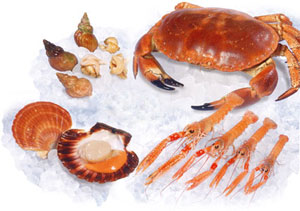 Living close to water definitely has its perks, especially when it comes to seafood. But shellfish in general are actually very beneficial to your thyroid and can play a crucial role in your hypothyroidism diet.
Living close to water definitely has its perks, especially when it comes to seafood. But shellfish in general are actually very beneficial to your thyroid and can play a crucial role in your hypothyroidism diet.
For starters, they are a good source of thyroid hormone which we rarely get in our standard meat based diet these days. So eating shellfish alone can help give your thyroid some much needed support.
Another amazing benefit of shellfish is that they are naturally high in selenium. And selenium is one of the key nutrients that are required to convert the inactive T4 to the active T3 thyroid hormone in your liver.
7. Cut the Processed Foods
If it’s one thing that almost every hypothyroidism diet can agree with, it’s that processed foods have no place whatsoever in your diet.
Processed and/or packaged foods are loaded with processed grains that cause lots of problems with your blood sugar. And this causes a spike in your insulin levels which eventually leaves you with low blood sugar. And this creates yet another stress hormone response in order to raise your blood sugar levels back to normal.
There’s also the issue of these processed foods being full of toxic chemicals like flavor enhancers and preservatives. These chemicals are toxic and contribute to liver congestion which makes it even more difficult for your liver to convert the necessary thyroid hormones into their active form.
8. Cook Your Veggies
This is another one of the more controversial topics when it comes to your hypothyroid diet. And that’s because there’s a lot of misconceptions out there regarding raw vs. cooked veggies.
Yes, raw veggies do contain more nutrients than cooked veggies. But it’s not about what you eat; it’s about what you digest.
Because raw veggies are very difficult to digest, you actually extract fewer nutrients from them raw than you do from cooked veggies.
You also want to really cook your veggies well in order to help break down the fiber and make the nutrients as readily available as possible. Otherwise, the fiber can become food for bad gut bacteria which is problematic and also contributes to hypothyroidism.
9. Don’t Overdo the Water
Continuing in our long list of controversial hypothyroidism diet topics, let’s discuss water.
Most people are led to believe that they need 8 glasses of water a day or even more. But what we already know about hypothyroidism is that is causes water retention. So why does it make sense to drink even more water when your body has a problem getting rid of it in the first place?
It doesn’t.
And this can cause your sodium levels to drop even more which as I mentioned above, also contributes to hypothyroidism.
The best recommendation for water while on your hypothyroidism diet is to drink when thirsty. If you work outside in the sun then odds are you’ll need more water than me while I’m sitting here indoors moving only my fingers on the keyboard.
The amount of water you really need depends on many variables. And your thirst is the best indicator of how much you need.
10. Drink Your Coffee
 I thought I would round out the 10 hypothyroidism diet tips with… coffee.
I thought I would round out the 10 hypothyroidism diet tips with… coffee.
Believe it or not, but coffee has some amazing benefits for your thyroid. But keep in mind that it has to be taken right or else it can have some negative effects. You should never drink coffee on an empty stomach. And it’s important to add the right ratios of fat and sugar.
Coffee is high in caffeine which works to stimulate your thyroid. It’s also high in magnesium and B vitamins which are both necessary for proper thyroid function.
Studies also back up these claims showing that coffee drinkers have the lowest incidence of thyroid disease, including cancer.
I know that many of the tips that I just gave you are controversial. But they are all based on research even though the research might not have made it into the public eye for one reason or another. That’s a topic for another article. But I hope that you’ve learned some very useful tips that you can immediately put into action and incorporate into your hypothyroidism diet today to start seeing some results.

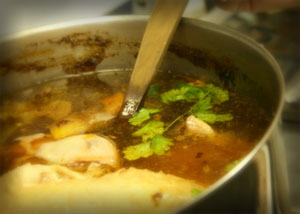 Yes, protein is good for you and it needs to be a big part of any diet for hypothyroidism. But also keep in mind that not all protein is created equal.
Yes, protein is good for you and it needs to be a big part of any diet for hypothyroidism. But also keep in mind that not all protein is created equal.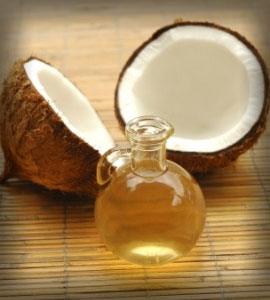 Another very important component to any diet for hypothyroidism is saturated fats. The benefits of having saturated fats in your diet are enormous. But you have to break through the invalidated misinformation out there that has led so many people to wrongfully believe that saturated fats are bad.
Another very important component to any diet for hypothyroidism is saturated fats. The benefits of having saturated fats in your diet are enormous. But you have to break through the invalidated misinformation out there that has led so many people to wrongfully believe that saturated fats are bad.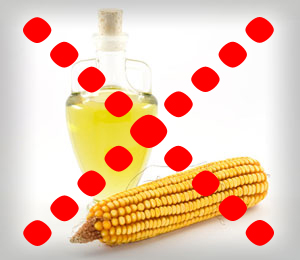 You might be well aware that polyunsaturated fats have been praised for decades as the “heart healthy” fat that is going to save you from heart disease and protect you from all those deadly saturated fats.
You might be well aware that polyunsaturated fats have been praised for decades as the “heart healthy” fat that is going to save you from heart disease and protect you from all those deadly saturated fats.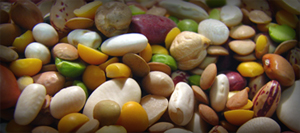 I’m sure you’ve heard of soy or many of the food products that are made from soy such as tofu. In fact, soy is considered to be a “health food” in many circles. Even the Food and Drug Administration (FDA) has praised soy as a health food.
I’m sure you’ve heard of soy or many of the food products that are made from soy such as tofu. In fact, soy is considered to be a “health food” in many circles. Even the Food and Drug Administration (FDA) has praised soy as a health food.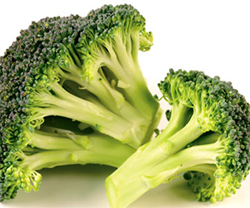 You’ve been told since you were a kid to “eat your veggies”. But what if not all veggies were actually healthy for you? Yes, there are actually a number of veggies that should be avoided on any diet for hypothyroidism, believe it or not.
You’ve been told since you were a kid to “eat your veggies”. But what if not all veggies were actually healthy for you? Yes, there are actually a number of veggies that should be avoided on any diet for hypothyroidism, believe it or not.